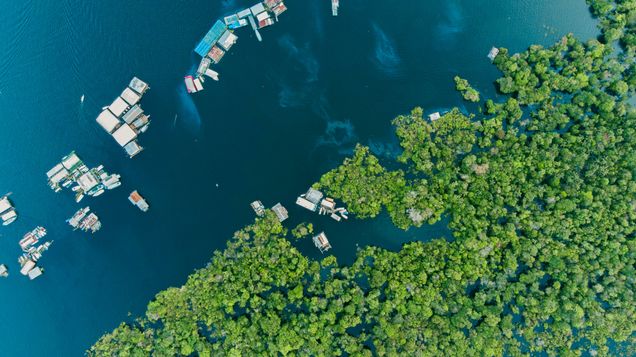Defunding the Amazon: Mapping ISDS Risk from the Oil and Gas Sector in Amazonian Countries

The protection of the Amazon is a central theme of the 30th Conference of the Parties (COP30) in Belém, Brazil. However, efforts to ensure that the Amazon is defended are at risk of instead being defunded—by investor-state dispute settlement (ISDS). Written into international investment treaties, ISDS gives foreign investors a special right to sue governments in arbitral tribunals for damages to the value of their investments.
This creates a problem for Amazonian governments protecting the Amazon. Oil and gas extraction is a major direct contributor to deforestation through the significant share of these countries’ oil and gas projects located in the Amazon, and it is also a contributor to the climate change that threatens the Amazon. As a result, these governments will need to introduce policies that limit such activity. However, policies that limit oil and gas extraction could result in ISDS claims from fossil fuel companies whose profits depend on related deforestation.
A new policy brief by Tim Hirschel-Burns, Rachel Thrasher and Fiorella Paredes provides a previously unavailable mapping of ISDS risk in the oil and gas sector in the eight countries that share the Amazon: Bolivia, Brazil, Colombia, Ecuador, Guyana, Peru, Suriname and Venezuela. It explains why ISDS poses a threat to Amazonian countries and provides quantitative data on each country’s exposure to ISDS.
Main findings:
- 218 oil and gas projects in Amazonian countries are covered by ISDS provisions in investment treaties, with Colombia having the largest number of ISDS-covered projects of any country.
- In Amazonian countries, at least 26.5 billion barrels of oil equivalent are covered by ISDS provisions, with Venezuela having the largest amount of ISDS-covered reserves of any country.
- The Amazonian countries with the highest proportion of their oil and gas projects exposed to ISDS are Guyana (96 percent), Colombia (45 percent) and Peru (42 percent).
- Because they have almost entirely avoided entering investment treaties with ISDS, Brazil and Suriname have no exposure to ISDS in their oil and gas sectors. Ecuador and Bolivia’s decisions to terminate their investment treaties will limit their future liability, but they continue to face exposure to ISDS in the present due to those treaties’ sunset clauses.
Policy recommendations:
- Amazonian countries should refrain from signing new investment treaties with ISDS provisions.
- Amazonian countries should withdraw from existing investment treaties with ISDS.
- Treaty partners should work with Amazonian countries to nullify ISDS provisions in their shared investment treaties.
As governments rightly focus on Amazon protection at COP30, they should not overlook the significant threat ISDS poses not just to Amazonian countries, but to the countries around the world that benefit from the Amazon’s contribution to global public goods.
Read the Policy Brief